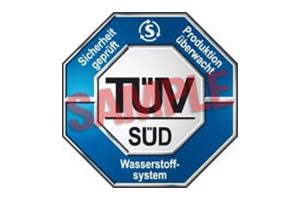The Bosch Anderson facility has already begun work on the expansion to support fuel cell technology. Capital upgrades to the Anderson campus include an estimated 147,000 square feet of floorspace to be developed to manufacture the fuel cell stack as well as supporting clean room and climate-controlled environments required for quality-critical processes.
Fuel cell stack production is highly complex. One stack consists of 3,200 individual parts assembled, more than 400 layers and more than 100 unique components. Fuel cell stack production in Anderson will expand on Bosch’s existing global production for fuel cell stacks, including critical sub-components.
“In order to successfully bring fuel cell technology to market in mass scale, it requires a combination of extensive experience in research and development, systems integration and complex manufacturing process,” said Mike Mansuetti, President of Bosch in North America. “Bosch is unique in its ability in all these areas. The work we have already done in commercializing fuel cell technology builds on our extensive experience in developing and manufacturing products for the internal combustion engine at scale.”
Bosch will be one of the first to market with large-scale production to support hydrogen-powered commercial vehicles. The company recently announced it would invest more than USD 1 billion globally to develop mobile fuel cell technologies by 2024. The company previously announced a collaboration with Powercell to develop the fuel cell stack. The goal has been a high-performance solution that can be manufactured at high volume and a market-competitive cost.






